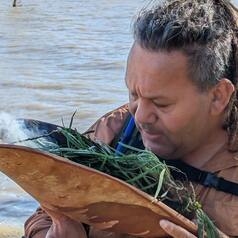
Dave Doyle
Barkindji/Malyangapa Indigenous Knowledge holder, Indigenous Knowledge
Dave Doyle is a Barkindji/Malyangapa man living on Barkindji country in Broken Hill NSW. Dave works as an Aboriginal Health Practitioner with the Royal Flying Doctor Service, is an active member of the Menindee Elders Group, a Director of Barkindji Native title, makes art and has a keen interest in native plants and Barkindji bush medicines.
Less ![]()
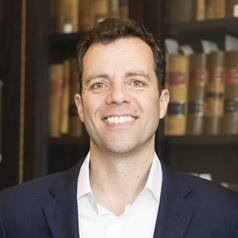
Dave Fagundes
Baker Botts LLP Professor of Law and Research Dean, University of Houston Law Center
Dave Fagundes writes and teaches about property, including copyright, real estate, and wills and trusts. He joined the University of Houston Law Center faculty in fall 2016, and was appointed the Baker Botts LLP Professor of Law in 2018. He also serves as UHLC's research dean.
Professor Fagundes began his teaching career at Southwestern Law School in Los Angeles, California, where he taught from 2007 through 2016. Prior to entering academia, he worked as a Bigelow Fellow and Lecturer in Law at the University of Chicago Law School, an associate at the Washington, D.C. office of Jenner & Block, LLP, and a clerk to Judge David S. Tatel of the U.S. Court of Appeals for the D.C. Circuit.
Professor Fagundes' most recent and forthcoming scholarship focuses on property's abandonment doctrine, the Second Amendment status of municipal corporations, and the intersection of copyright and administrative law. His articles have appeared in the Cornell Law Review, the Northwestern University Law Review, the Texas Law Review, and the Vanderbilt Law Review, among others. His work has been selected for presentation at leading national venues including the Stanford/Yale Junior Faculty Forum and the plenary session of the IP Scholars’ Conference (on two occasions), and has been showcased four times in the Journal of Things We Like Lots (JOTWELL).
Professor Fagundes was named the UHLC Order of the Barons Professor of the Year for 2019-2020. He was elected to the American Law Institute in July 2020.
Less ![]()

Dave Roberts
Professor Emeritus of Ecology, Montana State University
I am a vegetation ecologist interested in the distribution of floral biodiversity and the analysis of biodiversity more broadly.
Less ![]()

Dave Sayers
Senior Lecturer in Sociolinguistics, University of Jyväskylä
Dr. Dave Sayers is a Senior Lecturer in Sociolinguistics at the University of Jyväskylä, Finland. He has previously lived and worked in England and Wales. His research interests include sociolinguistics and language policy.
Less ![]()
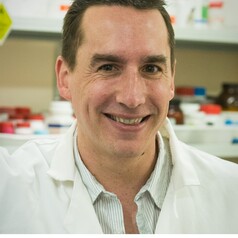
David Ackerley
Professor of Biotechnology, Te Herenga Waka — Victoria University of Wellington
I am a microbiologist and enzyme engineer, and my primary research focus is on discovery, characterisation, engineering and application of useful bacterial enzymes, and of novel antibiotics to counter the spread of multi-drug resistant bacteria. I have a particular interest in tailoring enzyme activities by directed evolution - a powerful engineering approach that applies Darwinian evolutionary principles at a single-gene level, using iterative rounds of focused mutagenesis followed by artificial selection of enhanced enzyme variants to improve desirable activities. I am also excited by the discovery of “unknown unknown” enzymes from soil-dwelling bacteria – enzymes we don’t presently know about that can catalyse useful chemical reactions, such as degradation of recalcitrant environmental pollutants. This approach tends to uncover enzymes that are relatively weak and ineffectual to begin with, but which can prove to be excellent start points for directed evolution, seeking to create practical solutions to major problems.
Less ![]()

David Acunzo
Assistant Professor of Psychiatry and Neurobehavioral Sciences, University of Virginia
David J. Acunzo, PhD, is Assistant Professor in the Division of Perceptual Studies at the University of Virginia School of Medicine.
After a degree in telecommunications engineering from IMT Atlantique (France), David obtained his PhD in neuroinformatics from the University of Edinburgh (UK) and then occupied research positions at CIMeC – Center for Brain/Mind Sciences, University of Trento (Italy), and the Centre for Human Brain Health, University of Birmingham, UK.
He has worked on a diverse array of cognitive neuroscience topics including vision, attention and semantic processing using various computational and functional neuroimaging techniques including EEG, MEG and fMRI.
His current research interests include abnormal perceptions, response to hypnotic suggestion and extraordinary experiences including mystical and psi experiences.
Less ![]()

David Adams
Lecturer in Urban Planning, University of Birmingham
Dr David Adams has research interests in urban planning and urban geography. He has a Geography BSc (2002) from Loughborough University, an MA in Spatial Planning (2008) and a PhD (2014) in planning from Birmingham City University. He taught planning at Birmingham City University from 2008 until 2017.
In 2015, David became the programme lead for Birmingham City University’s Royal Town Planning Institute-accredited undergraduate planning course. Prior to taking-up his teaching post, Dr Adams worked in public sector planning.
Less ![]()
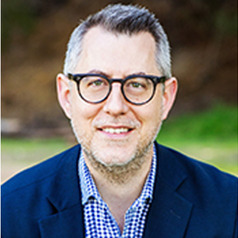
David Albertson
Associate Professor of Religion, USC Dornsife College of Letters, Arts and Sciences
David Albertson is Associate Professor of Religion at the University of Southern California, where he has taught since 2007 after studies at Stanford, Oxford, Chicago, and Cologne. He is the author of "Cusanus Today: Thinking with Nicholas of Cusa between Philosophy and Theology" (The Catholic University of America Press, 2024); "Mathematical Theologies: Nicholas of Cusa and the Legacy of Thierry of Chartres" (Oxford University Press, 2014); "Without Nature? A New Condition for Theology" (Fordham University Press, 2009); and over 30 articles on medieval philosophy and mysticism. His research has been supported by the Fulbright Fellowship, the National Endowment for the Humanities, the American Council of Learned Societies, The Huntington Library, and the Alexander von Humboldt Foundation. He is the founding Executive Director of the Nova Forum for Catholic Thought and writes for Commonweal and American Magazine. His current projects are a monograph on the role of geometry in the emergence of Christian mysticism and a translation of controversial monastic letters from medieval Germany.
Less ![]()
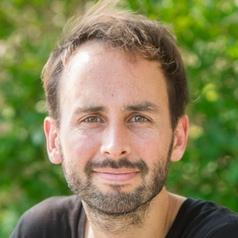
David Alff
Associate Professor of English, University at Buffalo
I am an associate professor of English at SUNY-Buffalo, where I research the eighteenth-century Anglophone world. I received my PhD from the University of Pennsylvania in 2012. My academic writing has appeared in Critical Inquiry, ELH, PMLA, Eighteenth-Century Studies, The Eighteenth Century, Philological Quarterly, and various critical collections. I have also written essays for The Washington Post, The Boston Review, Avidly, and Book Post.
My new book, The Northeast Corridor, is coming out from the University of Chicago Press in April 2024. It’s about trains, and how they make the places that make us.
I am currently writing a monograph, Rights of Way: A Literary Approach to Infrastructure, which finds the conceptual origins of our built world in early modern debates over the legality of passage. I have delivered invited talks from this project at Harvard, Yale, Columbia, and the University of Iowa.
My first book, The Wreckage of Intentions: Projects in British Culture, 1660-1730 (University of Pennsylvania Press, 2017) investigated the origins of projects, concrete yet incomplete efforts to advance British society in a period defined by revolutions of finance and agriculture, the rise of experimental science, and the establishment of constitutional monarchy.
I am currently co-editing with Jo Guldi, a special issue of Eighteenth-Century Studies, on infrastructure. I am also co-editing with Danielle Spratt a critical collection, Histories of Science, to be published by the University of Virginia Press.
Less ![]()
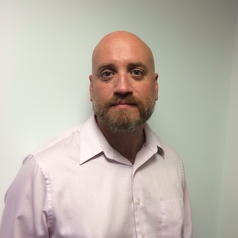
David Alpher
Adjunct Professor at the School for Conflict Analysis and Resolution, George Mason University
David Alpher, PhD, has spent the past fourteen years applying conflict resolution theory and methodology to practical international development work in fragile and unstable areas. He has twice led field programs in Anbar Province, Iraq; first working to reduce the involvement of youth in the insurgency in 2007 and 08, and then working to peacefully reintegrate Internally Displaced People in the Ramadi district in 2010. In addition he has worked with track two dialogues between conflicting parties in Israel/Palestine, conducted conflict and development assessments in Nepal and Ethiopia, and helped facilitate inter-religious dialogues in the US. Dr. Alpher completed his PhD from the School of Conflict Analysis and Resolution at George Mason University in 2011.
In addition to continuing field work, Dr. Alpher teaches courses on development and conflict, global conflict issues and terrorism at George Mason University. His dissertation, entitled "Developmental Politics: The Minnow and the Leviathan," examined the nature of democratization as an alternative to poverty alleviation as the driving force behind success in international development work. His focus of research is on issues relating to policy and action reform within the development field, development implementation in areas of ongoing conflict, civil-military coordination and complex operations, and on ethnic and religious conflict. He has published scholarly work on the nature of mass violence, as well as writing articles in OpenDemocracy, Politico and Bitterlemons International, among others, on the nature of policy reform within development work, and political stability in Iraq and Israel/Palestine, and has been quoted both domestically and internationally about domestic right-wing extremism in the United States. Dr. Alpher has briefed Congress, non-governmental organizations and a range of offices of the US Government on development and security policy in the Middle East, and speaks frequently at area universities. Dr. Alpher also earned his MS degree from the School of Conflict Analysis and Resolution, focusing on ethnic and religious conflict, and is a BA alumnus of Brandeis University's history department.
Less ![]()
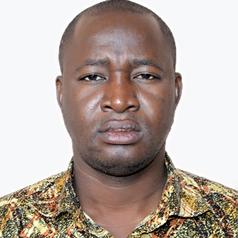
David Anaafo
Senior Lecturer, Planning and Sustainability, University of Energy and Natural Resources
David is an urban/regional planner, and a senior lecturer with the Department of Planning and Sustainability of the University of Energy and Natural Resources, in Sunyani, Ghana. He is also a post-doctoral scientist with the West African Science Service Centre for Climate Change and Adapted Land Use (WASCAL), currently working on the project "supporting pathways to sustainable land management in Africa".
Less ![]()
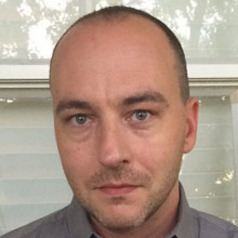
David Arbesú
David Arbesú is Assistant Professor of Spanish at USF, where he teaches courses on Medieval and Golden Age Spain, and Transatlantic Florida Studies. He holds a B.A. and M.A. in English from the University of Oviedo, and a M.A. and Ph.D. in Spanish from the University of Massachusetts Amherst. He has published articles in journals such as Hispanófila, Cervantes, Tirant, Hispanic Journal, La corónica, La perinola, eHumanista, Bulletin of Spanish Studies, or Hispamérica, and is the author of two books: A study and critical edition of Spain’s 14th-century version of Flores y Blancaflor (Crónica de Flores y Blancaflor. Tempe, AZ: MRTS, 2011), and a verse translation of Don Juan Tenorio (Newark, DE: Juan de la Cuesta Hispanic Monographs, 2012). He is also the editor of Spain’s oldest translation of the Bible, the Fazienda de Ultramar (available on-line at www.lafaziendadeultramar.com), and is currently working on two book projects, a study and edition of Pedro Menéndez de Avilés’ conquest of Florida, and a monograph on the Foundational Fictions of Medieval Spain, where he analyzes the stories used throughout the Middle Ages to build the collective identity of Spain.
Less ![]()

David Archibald
Professor of Political Cinemas, University of Glasgow
David is Professor of Political Cinemas in the University of Glasgow's School of Culture and Creative Arts. His publications include The war that won’t die: The Spanish Civil War in Cinema (2012), Tracking Loach: Politics ǀ Practices ǀ Production (2022) and many essays on film, film culture and radical cultural activity. He has long been interested in the relationship between art and history. He is the Series Editor of the Edinburgh University Press Political Cinemas Series, sits on the editorial boards of Journal of Class and Culture, Media Practice and Education and New Cinemas: Journal of Contemporary Film, and is a member of the Radical Film Network international steering committee. David is currently making films with Núria Araüna Baró under the banner ‘Ragged Cinema’, writing songs for and performing with The Tenementals, and is researcher-in-residence at The Revelator Wall of Death.
In recent years, David has been exploring what he has termed 'scholastical consciousness', that is, an awareness of the form of academic outputs. This work, which has consisted of a wide variety of artistic outputs, including film, performance, song, music video and creative writing, seeks to disturb the binary between academic and artistic research, and to explore how non-normative forms of knowledge production might enrich the academy.
Less ![]()

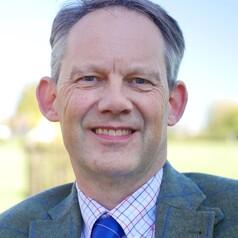
David Barrett
Professor of Bovine Medicine, Production and Reproduction, University of Bristol
Professor Barrett worked on bovine respiratory vaccine use in the 1990s and has a long-term interest in antimicrobial resistance (AMR) and responsible use of medicines in the livestock production sector. He has sat on several influential policy committees including the British Society for Antimicrobial Chemotherapy, Antibiotic Action, the Dairy UK antimicrobial group, the Veterinary Schools’ Council on AMR and is a former chair of the British Veterinary Association (BVA) medicines committee. He has also worked with other influential groups such as the Responsible Use of Medicines in Agriculture Alliance (RUMA) as a member of their independent scientific group, the National Office of Animal Health (NOAH), the Agriculture and Horticulture Development Board (AHDB), the Cattle Health and Welfare Group (CHAWG) and the Veterinary Medicines Directorate (VMD).
Professor Barrett is a member of an interdisciplinary research group focussed on antimicrobial resistance with an extensive portfolio of related research, ranging from detection of AMR organisms and genes on farm to documenting veterinarians’ and farmers’ opinions and practices in relation to veterinary medicines. This group has won the University of Bristol Vice Chancellor’s Impact Award for research and the prestigious ‘Agriculture and Food’ Antibiotic Guardian Award.
He is a former editor of the journal Cattle Practice and currently sits on the editorial boards of The Veterinary Journal and Veterinary Medicine and Science as well as being the consultant editor of the journal Livestock.
He took up the position of Professor of Bovine Medicine, Production and Reproduction at the University of Bristol in 2011, after 18 years at the University of Glasgow and was awarded a Fellowship of the Royal College of Veterinary Surgeons for Meritorious Contributions to Clinical Practice in 2017. In 2019 he was made an Associate of the Royal Agricultural Societies (ARAgS) for a veterinary career spanning 30 years in support of UK livestock agriculture – clinical practice, education, research and professional leadership. He is a Fellow of the Higher Education Academy and became Bristol Veterinary School Education Director in 2020. In 2021 he also became a Fellow of the Royal Society of Biology (FRSB).
Less ![]()

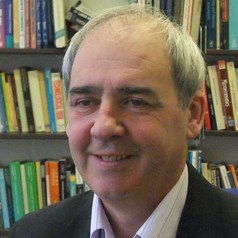
David Bell
David Bell is currently Professor of Economics at the University of Stirling, Scotland and the Budget Adviser to the Finance Committee of the Scottish Parliament. He studied economics at the University of Aberdeen and the London School of Economics. After a spell at the University of St Andrews, he joined the University of the Strathlyde, where he wrote his PhD. He joined the Macroeconomic Modeling Bureau at the University of Warwick in the early 1980s, and then was appointed a lecturer in the Department of Political Economy at the University of Glasgow. He joined Stirling in 1990 and since then, his main interests have been in labour economics, fiscal decentralization and the economics of social care. He has published widely and has acted widely as an adviser to policymakers.
Less ![]()
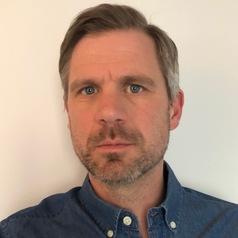
David Bergman
Karolinska Institutet
I am a general practitioner based in Stockholm, Sweden. I hold a PhD in epidemiology, with my research focusing on microscopic colitis and its associated disorders. Currently, I am engaged as a post-doctoral researcher at Karolinska Institutet, where I am continuing my research into microscopic colitis.
Less ![]()
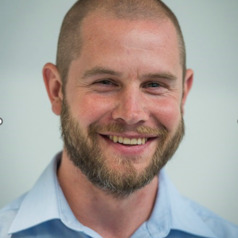
David Beynon
Senior Research Officer at the SPECIFIC Innovation and Knowledge Centre, Swansea University
Dr David Beynon is a Senior Research Officer working in the SPECIFIC IKC at Swansea University. Based in the faculty of science and engineering the SPECIFC group conducts research aimed at technologies for generation, store and release of energy. Moving from Chemistry to Engineering David has developed expertise in the fundamental science of printing and coating processes and the application for large scale manufacture of functional and electronic materials. Since 2017 he has applied this knowledge to the study of perovskite photovoltaics researching formulation and processing for upscaling from lab scale to roll to roll coating at a pilot production scale.
Dr David Beynon is a Senior Research Officer working in the SPECIFIC IKC at Swansea University. Based in the faculty of science and engineering the SPECIFC group conducts research aimed at technologies for generation, store and release of energy. Moving from Chemistry to Engineering David has developed expertise in the fundamental science of printing and coating processes and the application for large scale manufacture of functional and electronic materials. Since 2017 he has applied this knowledge to the study of perovskite photovoltaics researching formulation and processing for upscaling from lab scale to roll to roll coating at a pilot production scale.
Less ![]()
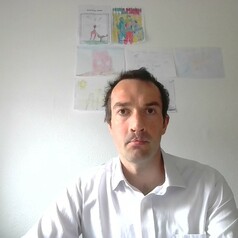
David Birchall
Senior Lecturer in Law, London South Bank University
I am a lecturer in law with the department of Law and Social Sciences. I joined LSBU in September 2021, having previously worked in a Hong Kong law school and at the University of Nottingham. My research investigates business-related human rights issues with a focus on socio-economic rights and markets for essential resources.
I have published extensively in the field of business and human rights, including in International and Comparative Law Quarterly, the Business and Human Rights Journal, and Transnational Legal Theory. I co-edited the Edward Elgar Research Handbook on Human Rights and Business, and I currently lead the Human Rights and Political Economy research group at the Business and Human Rights Global Scholars Association.
Less ![]()
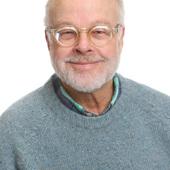
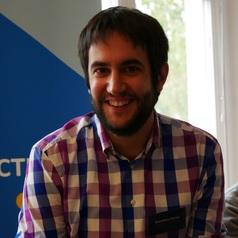
David Blanco-Herrero
Investigador en Comunicación, Universidad de Salamanca
David Blanco-Herrero es estudiante de doctorado en la Universidad de Salamanca. Es graduado en Periodismo (Universidad a Distancia de Madrid, 2016) y Administración de Empresas (Universidad de León, 2014) y máster en Comunicación Audiovisual (Universidad de Salamanca, 2018). Es miembro del Observatorio de los Contenidos Audiovisual, y cuenta con una beca FPU del Ministerio de Ciencia, Innovación y Universidades. Sus líneas principales de investigación son la ética periodística, la desinformación y el discurso de odio. Es asistente editorial en el Anuario Electrónico de Estudios en Comunicación Social “Disertaciones”
Less ![]()

David Blowers
David has extensive experience developing both energy and broader public policy in both Australia and the UK. He has spent the past three years working on energy and earth resources policy for the Victorian State Government, where he recently led the review of the Victorian Energy Efficiency Target scheme.
David has a Bachelor degree in Economics (Hons) from the University of Hull and a Masters degree in Economics of the European Union from the University of Exeter.
Less ![]()
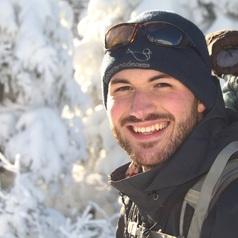
David Bolduc
Étudiant au doctorat en écologie animale, Université Laval
David s'intéresse aux interactions que les différentes espèces animales entretiennent, à leurs déterminants et à leurs conséquences sur le fonctionnement des écosystèmes. L'observation prolongée des animaux dans leur milieux naturel est une source d'émerveillement, de questionnement et, parfois, de précieuses informations. Il entame présentement un doctorat sur les interactions rongeurs-petits mustélidés (belettes, hermines) et la façon dont ces interactions sont influencées par la présence du manteau neigeux.
Less ![]()

David Bosco
Associate Professor of International Studies, Indiana University
David Bosco focuses on the political dynamics of international organizations and international law. He is the author of a book on the history of ocean governance, published by Oxford University Press. He also has continuing research underway on aspects of the United Nations system, with a focus on the Security Council's performance, and the International Criminal Court.
Less ![]()
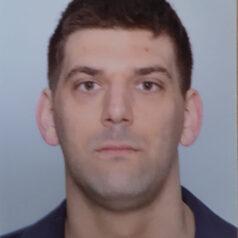
David Bossens
Senior Scientist, Centre for Frontier AI Research (CFAR), Agency for Science, Technology and Research, Singapore
David is Senior Scientist at the Centre for Frontier AI Research, A*STAR in Singapore. His work is to design AI systems with an open mind to the various sub-disciplines, though with an emphasis on safety and robustness.
In a quest to understand the mind, David started the study of psychology, in which he obtained an MSc in Psychology (Theory and Research Option) from the Catholic University of Leuven (KUL) in the year 2014 (cum laude). Beyond the neuroscience and principles of cognition that inspired the quest, these years were also formative in terms of research methodology, with a strong emphasis on the scientific method, modelling techniques and statistics. While studying psychology, David found that he was more interested in designing systems that following intelligent principles (Artificial Intelligence), rather than trying to copy the -- potentially sub-optimal -- way in which humans reason (Psychology). Thus he went on to do an MSc in Artificial Intelligence (Engineering and Computer Science Option) also at the KUL, a study from which he graduated in the year 2015 (magna cum laude).
From late 2015 until 2019, David joined the University of Southampton for a PhD programme in artificial intelligence. During this project, he studied reinforcement learning in long-term unknown environments, where only few assumptions could be made on the learning environment: sparse reward environments may hamper the ability to learn any rewarding patterns; partial observability and limited knowledge hamper the ability to investigate the environment; many unknown tasks may be presented in sequence (lifelong learning).
In 2019, David started a postdoc at Southampton to improve the robustness of robots to sudden faults or other types of changes in the environment.
Less ![]()
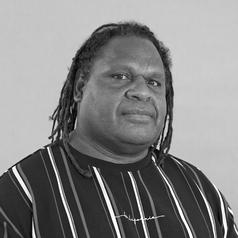
David Bosun
Mualgal man, Moa Island, Torres Strait, Indigenous Knowledge
Torres Strait Island artist David Bosun grew up in a very sensitive cultural environment and from the age of four he practised traditional dancing and singing. He first became interested in art in grade six after participating in an art class at school. David went to Thursday Island Secondary school and later moved to All Saints and St Gabriels Anglican college in Charters Towers, Queensland. During High School he was always in trouble for drawing in class instead of doing his work.
David has attended James Cook University and Cairns TAFE. He travelled extensively internationally with the touring exhibition Gelam my Son. He was also part of a delegation to Cambridge University and is believed to be part of the first people from the Torres Strait to examine the Haddon Collection of Torre Strait artefacts. David has also attended a cultural exchange in Suva, Fiji.
David believes that both the future generations in the Torres Strait as well as the rest of the world need to be educated about the rich cultural heritage and distinctiveness of Torres Strait culture. He is striving to record and illustrate his ancestral beliefs & traditions through the visual and performing arts.
Less ![]()

David Bourne
Professor of Marine Biology, James Cook University
David Bourne has a joint position as a Senior Lecturer at James Cook University in Townsville and Principal Research Scientist at the Australian Institute of Marine Science (AIMS). His training is in the area of molecular microbial ecology with his research focused on investigation of microbial diversity, structure and function in complex ecosystems.
As a research scientist and senior microbiologist at the Australian Institute of Marine Science (AIMS) his scientific interests and research areas included many aspects of marine science and microbiology including marine microbes for drug discovery and the microbial dynamics in aquaculture (Rock Lobster) larval rearing systems.
Over the last 15 years his research has focused on understanding microbial interactions with corals. This work is divided essentially into two areas, the first investigating the normal microbial communities associated with corals and their functional roles in maintaining coral fitness. The second research focus is to elucidate pathogens and mechanism of disease onset in corals and the implications this has on a stressed reef ecosystem in light of climate change being a major driver of coral reef degradation.
Less ![]()
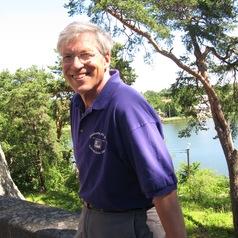
David Bressoud
Professor Emeritus of Mathematics, Macalester College
David Bressoud was Director of the Conference Board of the Mathematical Sciences from 2017 through 2021. He is now Dewitt Wallace Professor Emeritus at Macalester College, having served on the faculty from 1994 to 2020. He is also a former President of the Mathematical Association of America, a Fellow of the American Mathematical Society, and a Fellow of the American Association for the Advancement of Science. He served in the Peace Corps, teaching math and science at the Clare Hall School in Antigua, West Indies before studying with Emil Grosswald at Temple University and then teaching at Penn State for 17 years. He chaired the Department of Mathematics and Computer Science at Macalester from 1995 until 2001. He has held visiting positions at the Institute for Advanced Study, the University of Wisconsin-Madison, the University of Minnesota, Université Louis Pasteur (Strasbourg, France), and the State College Area High School.
David has received the MAA Gung and Hu Award for Distinguished Service to Mathematics, the MAA Distinguished Teaching Award (Allegheny Mountain Section), the MAA Beckenbach Book Award for Proofs and Confirmations, and has been a Pólya Lecturer and a Leitzel Lecturer for the MAA. He is a recipient of Macalester's Jefferson Award. He has published over sixty research articles in number theory, combinatorics, special functions, and mathematics education. His other books include Factorization and Primality Testing, Second Year Calculus from Celestial Mechanics to Special Relativity, A Radical Approach to Real Analysis (now in 2nd edition), A Radical Approach to Lebesgue's Theory of Integration, Calculus Reordered: A History of the Big Ideas, A Course in Computational Number Theory (with Wagon), and Calculus: Graphical, Numerical, Algebraic (with Demana, Waits, Kennedy, & Boardman).
David has chaired the MAA special interest group, Teaching Advanced High School Mathematics as well as the AP Calculus Development Committee and has served as Director of the FIPSE-sponsored program Quantitative Methods for Public Policy and PI for two NSF-sponsored national studies of Calculus: Characteristics of Successful Programs in College Calculus (NSF #0910240) and Progress through Calculus (NSF #1430540).
A native of Pennsylvania, David lives in Saint Paul, Minnesota.
Less ![]()
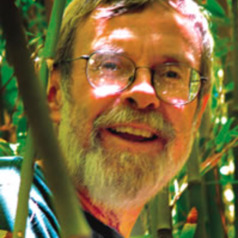
David Burney
Professor of Conservation Paleobiology, National Tropical Botanical Garden, and Adjunct Professor, University of Hawaii
Dr. David A. Burney is a paleoecologist and conservation biologist who has worked extensively in Africa as well as Hawaii, Madagascar, and other tropical islands. His research has focused on past environments, fire history, and natural disasters. He has over a half century of practical experience in conservation, starting out as a park ranger and including serving as a technical consultant for government projects and international programs.
Prior to moving to Kaua`i he was a professor at Fordham University in New York. He received an M.Sc. in conservation biology from the University of Nairobi (Kenya) and a Ph.D. in zoology with a minor in botany from Duke University. He is the author of over 100 scientific articles and monographs, many concerning pollen and other airborne particulates, sedimentary deposits, and the processes of extinction and environmental change.
In 2006 he was awarded a Guggenheim Fellowship to write a book on his work at Makauwahi Cave on Kaua`i, published by Yale Press (Back to the Future in the Caves of Kaua`i). His research has been featured on National Geographic Television, Discovery Channel, Hawaii Public Television, NOVA, and National Public Radio, and he holds the honorary title of National Geographic Explorer.
With his wife Lida Pigott Burney, he established the Makauwahi Cave Reserve on Kaua`i to protect, research, and restore Hawaii’s richest fossil and archaeological site and reestablish thousands of native plants on the surrounding landscape. He currently holds the emeritus position of professor of conservation paleobiology at the National Tropical Botanical Garden, where he served as director of conservation from 2004 until 2012. His studies of tsunami deposits, fire history, and climate change have contributed to discussions and practical steps toward safer communities and healthier ecosystems.
Less ![]()

David Cason
I have over thirty years of teaching experience at the secondary and post-secondary level. I have expertise in Southern History, Civil Rights and Social Justice, and Political Socialization.
Less ![]()
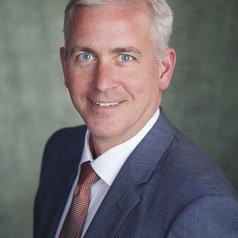
David Castle
Professor, School of Public Administration, University of Victoria
Dr. David Castle is a Professor of science, technology and innovation policy in the School of Public Administration, University of Victoria. His research focuses socio-economic aspects of biodiversity, especially natural capital accounting and access and benefits sharing of genetic resources. He is a Research in Residence at the Office of the Chief Science Advisor, Canada where he advises on science policy, open science, research security, major research infrastructure, and biodiversity. He Chairs the Science Advisory Committee of the Council of Canadian Academies and is the Chair of the Scientific Committee of the International Science Council’s World Data System (WDS).
Less ![]()

David Chavalarias
Research director, Centre d’Analyses de Mathématiques Sociales (CAMS), Ecole des Hautes Etudes en Sciences Sociales (EHESS), Centre national de la recherche scientifique (CNRS)
David Chavalarias is Director of Research at the CNRS lab Center for Social Analysis and Mathematics (CAMS) and is the head of the Complex Systems Institute of Paris Ile-de-France (CNRS, ISC-PIF – http://iscpif.fr). He studies the social and cognitive dynamics, both from the modeling and data-mining perspective, with an interdisciplinary approach grounded in cognitive and complex systems sciences. His work on science evolution features new methods for the reconstruction of science dynamics from academic productions, as well as models of collective dynamics of scientific discovery. He also has contributed to the development of several macroscopes and visualization tools for mapping knowledge dynamics from large corpora : academic digital repositories, online media or press.
Less ![]()
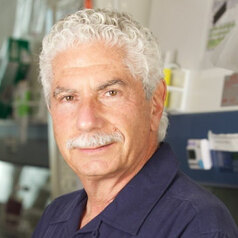
David Cheresh
Professor of Pathology, University of California, San Diego
Dr. Cheresh is a Distinguished Professor and Vice Chair in the Department of Pathology at UC San Diego, and a member of the UC San Diego Moores Cancer Center.
Dr. Cheresh earned his PhD in Immunology at the University of Miami in 1982.
Prior to relocating his laboratory to UCSD in 2005, Dr. Cheresh was a professor in the Departments of Immunology and Vascular Biology at The Scripps Research Institute.
Less ![]()
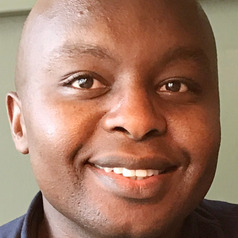
David Cheruiyot
Assistant Professor of Journalism and Media Studies, University of Groningen
David Cheruiyot is an assistant professor at the Centre for Media and Journalism Studies at the University of Groningen in the Netherlands.
Less ![]()
- Market Data























